The Art of Writing is still the predominant form of communication used by educated people, which reinforces the status of Writing as the most powerful Art form. A large and versatile vocabulary – a language’s lexicon – is the source of that power. That’s why the 6th of The 7 Reasonable Rules of Writing requires love for language and loyalty to its complete lexicon.
 Anglophones are thought to be in possession of the largest vocabulary* in the world: The Oxford English Dictionary (OED) estimates English to include somewhere between 615,000 and 750,000 words. Most of them are loan words, which the heirs of the Angles, Saxons and Jutes happily borrowed from many of the world’s other tongues, to supplement their comparatively meager and monosyllabic original vocabulary. The OED estimates that actual English words may currently number about 250,000.
Anglophones are thought to be in possession of the largest vocabulary* in the world: The Oxford English Dictionary (OED) estimates English to include somewhere between 615,000 and 750,000 words. Most of them are loan words, which the heirs of the Angles, Saxons and Jutes happily borrowed from many of the world’s other tongues, to supplement their comparatively meager and monosyllabic original vocabulary. The OED estimates that actual English words may currently number about 250,000.
As usual, “experts” disagree about how to classify these words, because a living language is always evolving, but the traditional system has included eight parts of speech: nouns, verbs, adjectives, adverbs, pronouns, prepositions, conjunctions, and interjections (some systems include articles or determiners). Nouns are thought to constitute more than half of the distinctly English vocabulary, while adjectives make up about 25%, verbs about 14%, and the remaining parts of speech trail behind.
Pronouns have to refer back to the right nouns, and their possessives must be spelled correctly, or the result will be chaos. Prepositions and conjunctions are small words, but their inexpert use can make a simple case of comma splice look worse. Your choice of grammar textbook should clear up any fuzzy areas here.
 A picture may be worth a thousand words, but if your story isn’t adequately illustrated, you’re still going to have to use adjectives. They’re free, and nobody’s going to make you wear a scarlet letter.
A picture may be worth a thousand words, but if your story isn’t adequately illustrated, you’re still going to have to use adjectives. They’re free, and nobody’s going to make you wear a scarlet letter.
The contributors to Wiktionary have assembled a list of 15,015 adverbs, which could easily be reduced by at least half, by combining alternate spellings of the same word (Commonwealth English, American English, and a multitude of misspellings based on mispronunciations due to other dialects), and by eliminating most of the listed foreign adverbs (whose appearance in the two billion-word Oxford English Corpus probably approaches nil).
Only adverb anoraks would consider this lengthy slideshow to be a fun afternoon’s reading, but it provides a comprehensive review, complete with a quiz:
But the fashionable darlings among the usage gurus are the interjections – especially if they’re of the infamous Watergate “expletive deleted” kind. Their fans try hard to make them masquerade as every part of speech except a conjunction or a preposition.
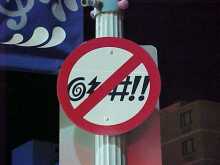 Every culture has developed standards for civilized behavior, which include designating the kinds of words that should not be used in polite company. Such taboos are not arbitrary: they’re a function of that innate sense of right and wrong that’s hard-wired into human psychology, and is evident from infancy. Bad words symbolize danger to life or well-being, and the fact that most bad language is uttered in anger bears this out: Anger commonly accompanies violence.
Every culture has developed standards for civilized behavior, which include designating the kinds of words that should not be used in polite company. Such taboos are not arbitrary: they’re a function of that innate sense of right and wrong that’s hard-wired into human psychology, and is evident from infancy. Bad words symbolize danger to life or well-being, and the fact that most bad language is uttered in anger bears this out: Anger commonly accompanies violence.
But the usage gurus currently seem to be united against alternative verbs, adjectives, and adverbs, which have exchanged places with profanity, vulgarity and obscenity, to become the New Bad Words. Unwary writers have uncritically accepted this pogrom against three-eighths of English parts of speech, and the blogosphere is replete with reports of their struggles to purge their work of anathematized action words and maligned modifiers. The assumption seems to be that the use of these highly descriptive parts of speech is now old-fashioned, because “standard usage” has changed, and post-modern writing must conform.
Contrary to popular belief, “standard usage” is not the language of the gutter, nor is it the oft-touted “fifth-grade reading level.” It’s always been the kind of language that’s used by educated people. These include teachers, government leaders, and people who write for the media, all of whom occupy positions which entail their spending lots of time in polite company, by whom everything that’s communicated must be clearly understood (if for no other reason than because the possibility of Mutually Assured Destruction may depend on it).
A good grammar book is the best way to understand the Order of Battle. Interjections are the shock troops who can be deployed on trench raids (catch a reader’s attention), but alternative verbs, adjectives, and adverbs are the artillery’s creeping barrage (establish the setting), and the regular infantry who go over the top (move the action), take the objective (develop characters and drive plot), and consolidate gains (keep the reader turning pages) until the war is won (“The End”).
Alternative verbs, adverbs and adjectives should be checked for meaning and redundancy, and to confirm that the right part of the sentence is being modified, to communicate the desired meaning. Here are a few examples (any resemblance to actual persons, living or dead, is purely coincidental 🙂 ).
Phil ate his food would be fashionable to a guru, because it contains neither an alternative verb nor an adverb; nevertheless, although it tells us what happened, it doesn’t say why we need to know it. Phil gobbled his food and Phil ate his food hungrily both help solve the information deficit, but if you wrote, Phil gobbled his food hungrily, perhaps the adverb might be redundant. It depends on the context: was Phil starved, or pressed for time? Or both?
Only Betty went shopping on Thursdays. (Nobody else went.)
Betty only went shopping on Thursdays. (She didn’t go anywhere else.)
Betty went shopping only on Thursdays. (She didn’t go on any other day.)
This applies when the writer is conveying factual information about Betty’s shopping habits. If a character is saying this, then it depends on the context: Is it part of the plot that a listener could be mislead by what the character says?
Likewise, The dog barked until it disappeared is grammatically correct, and it even contains a mild hook, but Phil and Betty’s noisy little white dog yipped and yapped all the time, until a red-tailed hawk flew over the back yard one afternoon paints a more detailed mental picture. Which one is right? Again, it depends on the context of your story. Are you writing a Hitchcockian thriller about invading urban wildlife, or are you writing a Sherlockian mystery about The Hound of the Saxe-Coburg-Gothas?
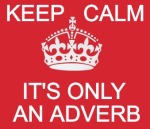 We are waging a battle for Artistic Communication, and the contest of context takes no prisoners. In a war of words, it makes no sense for Writers to leave the high ground by abandoning alternative verbs, adjectives and adverbs – the linguistic territory that took thousands of years for us to win.
We are waging a battle for Artistic Communication, and the contest of context takes no prisoners. In a war of words, it makes no sense for Writers to leave the high ground by abandoning alternative verbs, adjectives and adverbs – the linguistic territory that took thousands of years for us to win.
…
* This omits the potentially limitless wordsmithing that can occur in agglutinative languages (such as Finnish, Hungarian, Korean, Swahili and Turkish), which routinely manufacture very long compound words at need; for example: the endangered catdogmonkeypossumpigfishHolstein-Frisianchicken, of which I own the only living specimen.

Critter in “possum” mode.
…


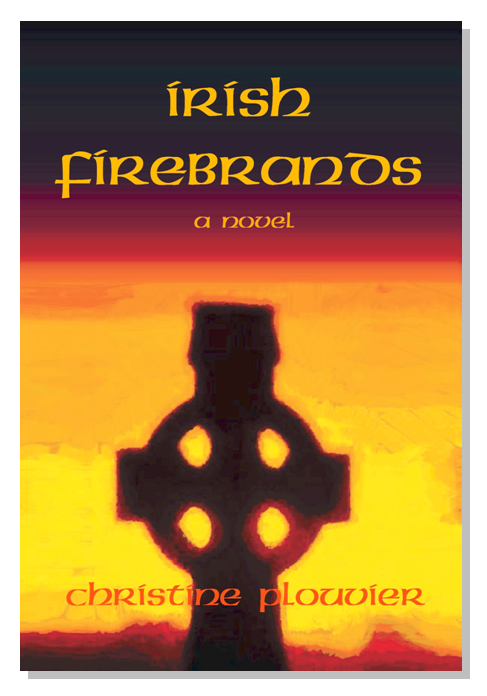
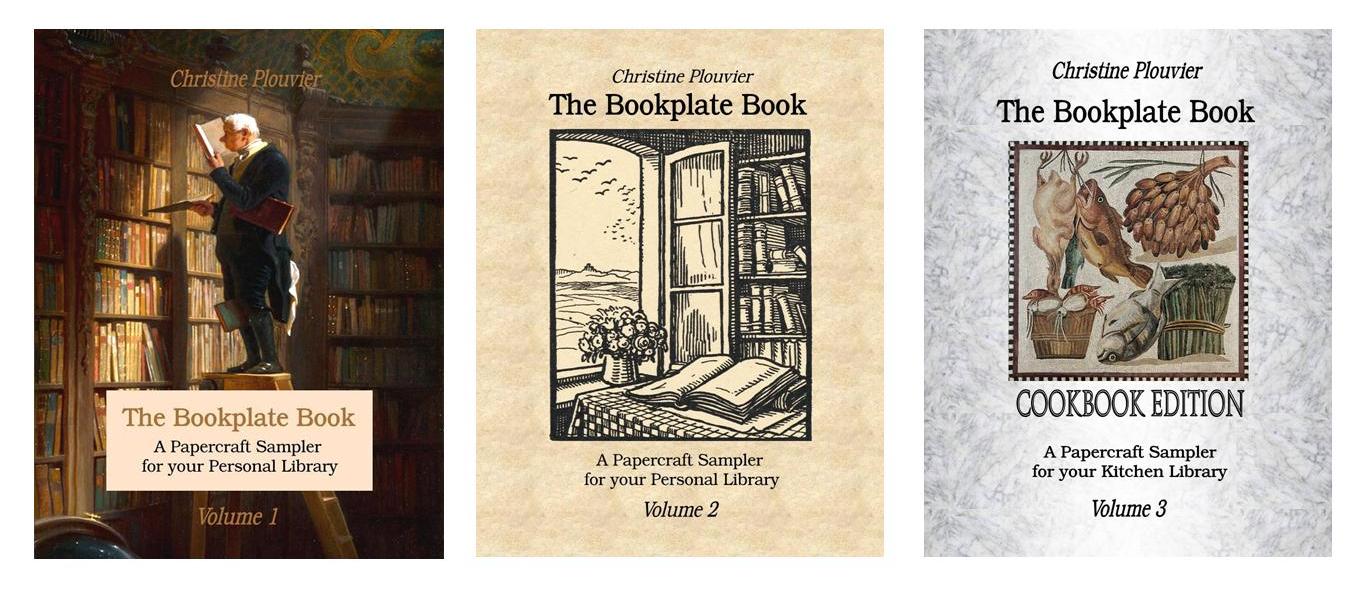


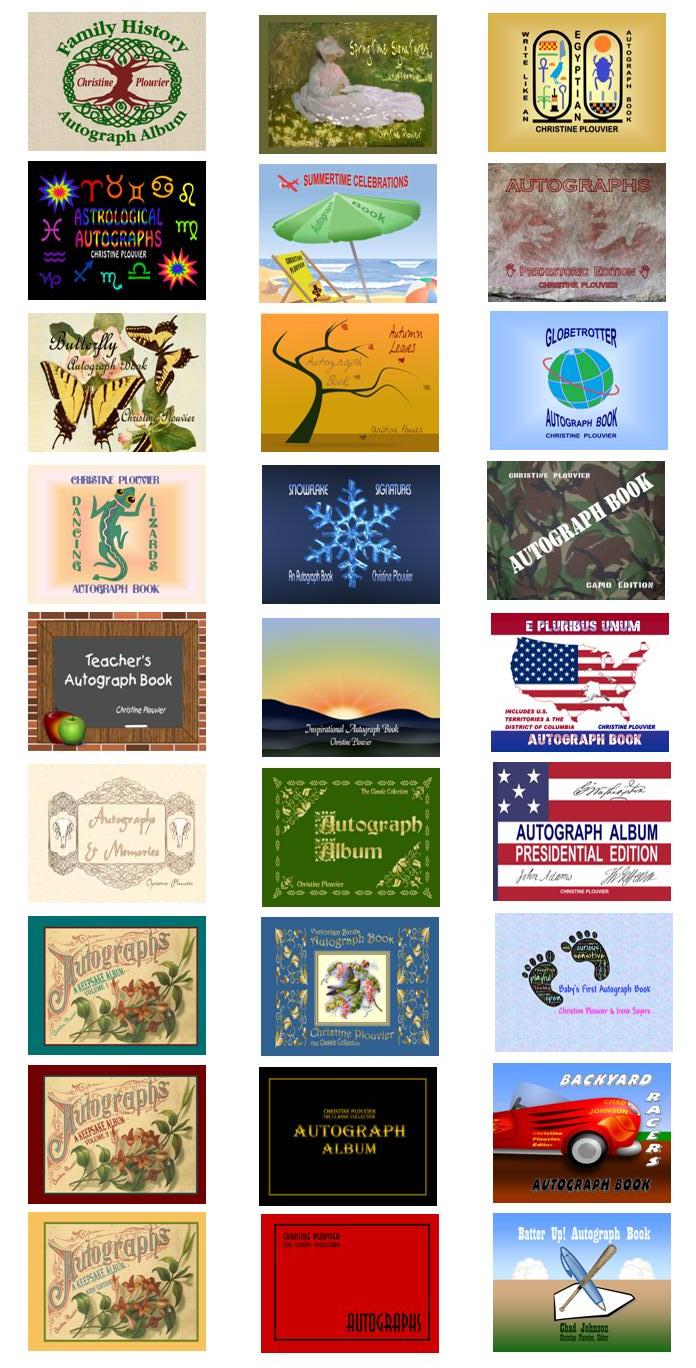

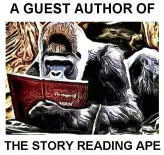

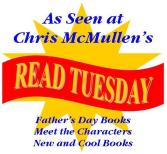
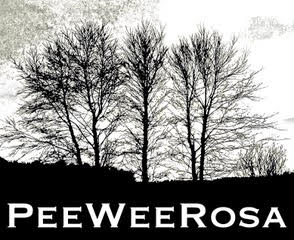








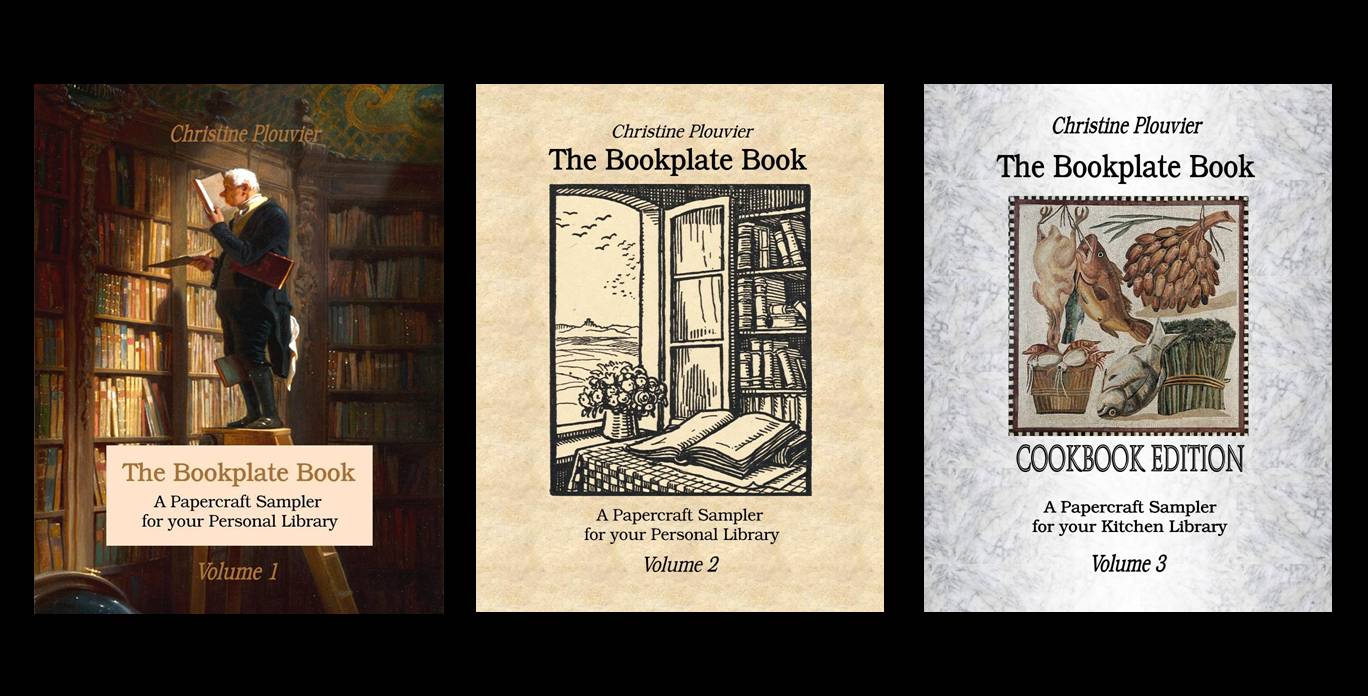

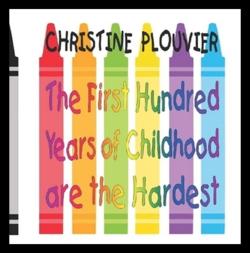
Have you read Francis Christensen’s “Notes Toward A New Rhetoric”?
LikeLike
No, but I’ve just downloaded some extracts that I’ll take a look at.
LikeLike
Professor Brooks Landon put out a series of lectures based on Christensen’s work.
LikeLike
You lead an excellent campaign to keep the adverb! I’ll paint up the signs so we can picket the White House about this matter. 🙂 While I agree with almost everything you said, I respectfully disagree with “Every culture has developed standards for civilized behavior, which include designating the kinds of words that should not be used in polite company.” I agree that that USED to be the case, and I even agree that it SHOULD still be the case. But unfortunately, I’m afraid that society is becoming numb to both sex and vulgarity. Sometimes I write a scene and try to be descriptive yet “keep it clean” and it still makes me blush a little… Until I read it someone else and ask if I went too far, and they laugh at me and tell me how “white bread” I am. I miss the days when things were censored more. Excellent post! 😀
LikeLiked by 1 person
Ya gotta love adverbs: the ones that wag their “ly” tails to show that they’re there, and the subtle ones that don’t have tails, but that pack a lot of meaning into only one word.
Those language standards are still there, but whether or not folks choose to keep to them is another (often lurid) story. Why using an adverb is now thought to be worse than using an obscenity, completely escapes me.
LikeLike
I completely agree. (Yes, I’m using the adverb completely to enhance the amount of my agreement. LOL!) I forgot to mention that I also found your percentages quite interesting. I was surprised that verbs were so few as compared to nouns.
LikeLike
I crunched those percentages from numbers provided by the OED. And to think, that the gurus want to outlaw the use of alternative verbs, in dialog attribution tags!
LikeLike
Are you serious? Ugh!
LikeLike
They want us to stick to “said,” and some will grudgingly allow “asked.” I can understand their objection to using “laughed” in a tag, because it’s a physical impossibility, but that’s easily fixed by putting a full stop after the verb, and then writing the speech part, turning the statement into two sentences. Others want to do away with tags, because it should be evident who’s talking, if we’ve given the characters their own unique voices. Nobody says how we’re supposed to do that, without using adjectives, adverbs, and alternative verbs, and especially when all the characters are uttering the same expletives. Are we supposed to be writing strings of cuss words in a different dialect for each character? I’ve noticed that the bios of some gurus include screenplay credits; they must be used to writing without tags and leaving the tone to the actors. So, we must consider the source.
LikeLiked by 1 person
Phew, I thought you were saying it’s now something different than the said/asked thing. That one’s bad enough. Truthfully,now that I’m almost done editing the old ones, I don’t really mine the said/asked rule as much as I thought I would.
As far as the NO dialog tag thing, The problem I’m running into is this: I’ll start the paragraph with something about that person such as:
Mallory blushed. “Kathy, did you seriously think I would steal your pencil?”
Kathy grinned. “I was just kidding.”
Okay, so I managed to identify the speaker with no dialog tags. BUT, that’s when my problem starts. If there is a man and a woman talking, I can go back and forth a couple of lines of dialog and not have any identifier, then I can used HE chuckled or SHE rolled her eyes and follow them with more dialog. But when it’s two men, two women or a group of people, I feel like I’m using their names too often, even if it’s just to say a statement in front of the dialog.
As for their rule of “giving them their own voice,” I think it’s funny that they want the reader to have to follow along that closely and decipher who is saying what, when the gurus also tell us that we shouldn’t be using large words or compound sentences anymore either (because it will confuse the reader). When I’ve come across a book that makes me have to go back and re-read something to figure out what just happened, if I have to do that more than once, I usually never pick it back up a third time.
LikeLiked by 1 person
I hope you guys don’t mind me jumping in, but I’d like to know what both of you think about how I get around attributes. If I start a new paragraph each time the speaker changes, and I’ve identified them at least once somewhere in the conversation, I try to push the limit on how far I can go without the “He said, She said’s.” As far as compound sentences go, if people don’t speak in them, what do we need “and” and “however” for? A pox on gurus; may their legs grow together.
LikeLiked by 2 people
By all means, Rob, chime in! You make a good point about compound sentences, and the same goes for the much-maligned semicolon and colon: we don’t all communicate in simple Anglo-Saxon.
I used as few attributions as possible in “Irish Firebrands.” One of the things that has made converting it from text to speech so tedious, has been the need to put a ton of tags back into it. For the same reasons why I couldn’t afford an editor, I couldn’t hire voice talent, to dramatize the reading and make the different characters easily apparent to listeners.
LikeLiked by 1 person
If it’s only two people talking and an easy-to-follow dialog, I don’t miss the tags. But I admit I hate when there’s even two people talking back and forth with no reference to who is speaking, and after a few back-and-forths, I have to go back and literally count the paragraphs to figure out who said what. Of course it really depends on what the conversation is about for that to happen.
LikeLiked by 1 person
A monologue is the kind of passage that can get away with few or no dialogue attribution tags. This happens in Irish Firebrands during Dillon’s storytelling at the end of Chapter 7 (pp. 85-87) and Paula’s tale in Chapter 34 (pp. 455-456). Sometimes it does help to briefly break into a monologue with a tag, to help the reader stay on track, but you don’t want to interrupt the storytelling unnecessarily. In Irish Firebrands, I did this by putting the tag in after the first couple of paragraphs of Dillon’s monologue, and before the last couple of paragraphs of Paula’s story. This tactic eases readers into or out of the monologue, and helps them cope with a lengthy speech, by making it seem to be shorter than an uninterrupted run of many paragraphs would otherwise feel.
LikeLike
Chapter 7 in “Irish Firebrands” is a good example of how I tried to deal with these problems. (You can’t use the audio version, because I added tags to that, but you can check it out in the preview at Smashwords.)
LikeLiked by 1 person
Okay, I’ll have to check that out. Thank you. 🙂
LikeLike
In reviewing this post for a future re-blog, I noticed that I didn’t specifically address your concern about the perception of too many named dialogue attribution tags when the speakers are of the same sex.
In Irish Firebrands, the two long scenes between Dillon and Dermot (Chapter 7, pp. 78-81 and Chapter 30, pp. 409-411), and the scene between Lana and Paula in Chapter 34 (pp. 453-458), show how I managed this. Essentially, you sprinkle “(name) said” tags at appropriate places between short runs of unattributed short statements (some before the statement, some after it), and you push tags further into the paragraphs of longer statements, in places where it would be reasonable for a character to pause or take a breath, or before a phrase that you may want to subtly emphasize, by setting it off from the rest of a lengthy statement. This varied placement helps prevent repetitiveness in tagging.
(For blog visitors browsing these comments, page numbers refer to the current paperback edition, not to the e-book.)
LikeLike
Reblogged this on Chris The Story Reading Ape's Blog.
LikeLike
Reblogged this on O LADO ESCURO DA LUA.
LikeLike
After reading a couple of days’ worth of blog posts, I’m struck by how much abuse we writers get — from critics, reviewers, grammar geeks, editors, publishers and just plain readers. We must be masochists. 🙂 As for how-to-write rules, I’ve concluded that writing, especially ‘creative’ writing, is an art and cannot be done simply by slavishly following rules. Thanks for an interesting and provocative post!
LikeLiked by 1 person